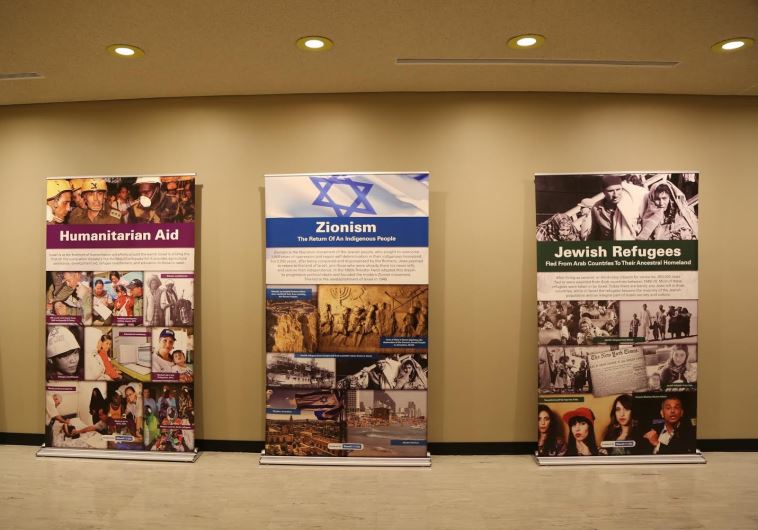UN partially reverses decision to censor Israel exhibition
The display on Zionism, which defined the concept as “the liberation movement of the Jewish people”, was the one that was ultimately approved.
 Special exhibition initiated by Israel’s permanent mission to the United Nations.
Special exhibition initiated by Israel’s permanent mission to the United Nations.